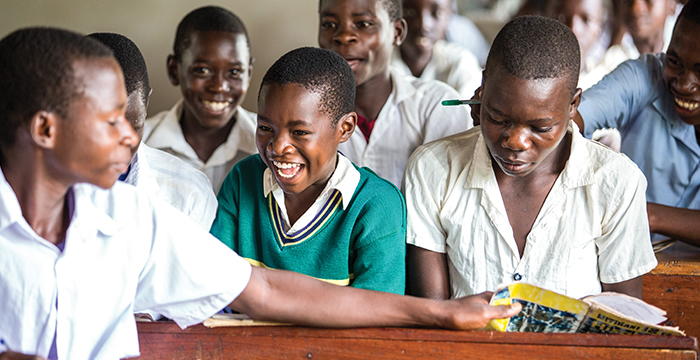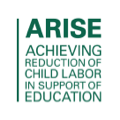Where we work
Targeted communities
ARISE aims to prevent and eliminate child labor in countries where JTI does business. We currently have activities in Brazil, Malawi, Tanzania, Zambia, Ethiopia and Bangladesh.

Asia
South America
Africa
Brazil
Brazil is the fifth-largest country in the world – both in terms of area and population – and the largest in Latin America by a considerable margin. It is also a country with considerable disparities of income, both within and across the urban-rural divide. Those living in rural communities often face challenges including a lack of quality education, poor healthcare, and underinvestment in infrastructure. Brazil’s legislative framework differs to other countries where we operate. Find out more here.
The ARISE program commenced in southern Brazil in February 2012 and was developed around the municipality of Arroio do Tigre in an area known as the Celeiro do centro-serra, in the southernmost state of Brazil, Rio Grande do Sul. This state differs from the rest of the country in its geography and its economy, where there is a mid-income level compared to lower levels in the rest of the country. Within the municipality, the program initially focused on the communities and surrounding areas of São Roque, Linha Ocidental, Taboãozinho, Rocinha, Sitio Alto, Coloninha, Vila Progresso, Linha Paleta, Linha São Pedro, and Linha Cereja. These areas were selected because of the high potential risk of child labor and the vulnerability of many children there. Interestingly child labor occurs there not so much because of poverty principally but rather due to a complex set of factors including cultural beliefs, the predominance of family farms, and a lack of awareness of the hazards of child labor. Today the program is in Agudo, Vale do Sol, Passa Sete, Segredo, Boqueirão do Leão e Venâncio Aires. The program started in the municipalities of Arroio do Tigre, Ibarama, Sobradinho and Lagoa Bonita do Sul. On the ground the ARISE program is being delivered together with local partners Escola Família Agrícola (EFA), Rural Unions, Municipal Government, Association of Women and Young People, EMATER (Company of Technical Assistance and Rural Extension).

Malawi
Poverty is a major contributor to the incidence of child labor in Malawi’s agricultural sector, which accounts for almost half of the country’s GDP. The problem is exacerbated by the high prevalence of HIV/ AIDS, and there are a large number of orphans vulnerable to child labor. Culturally ingrained beliefs are also an issue, with children expected to contribute to their family’s domestic economy, not only to provide additional income, but also to build a work ethic and appreciation for the family unit. ARISE was launched in Malawi in February 2012. From 2012 to 2020 ARISE focused three tobacco-growing districts of Ntcheu, Lilongwe and Dowa. From 2020, ARISE is now being implemented in 126 grower zones in eight districts reaching out to 5,569 JTI contracted growers.
In Malawi ARISE is managed from Lilongwe, the country’s capital city and relies on close collaboration with local implementing partners. The 126 grower zones were selected using a number of criteria including existing levels of child labor, vulnerability, the level of community engagement, the degree of women’s participation in the local economy, and the presence of farmers’ associations and other community networks. In Malawi, traditional authorities, and civic leaders play an important role in local government and community leadership, making their involvement a critical component in the wider success of the ARISE program.
One of our key the partners is Tradeline Corporation.

Tanzania
Tanzania has ratified several regional and international conventions, which are related to the welfare and rights of children. The ratified conventions include the International Labor Organization’s (ILO) Minimum Age for Admission to Employment (No.138), which was ratified in 1998, the Worst Forms of Child Labor Convention (No. 182) ratified in 2001, and the 1989 United Nations Convention on the Rights of the Child, which Tanzania ratified in 1991.
The Government has also put in place the Tanzania’s Employment and Labor Relations Act No. 6 of 2004, which prohibits employment of children under 14 years of age. The Employment and labor relations act further states that no child shall be employed in any situation that is harmful to health, dangerous, or other unsuitable activities.
According to the recent Tanzania National Child Labor survey, about 29 per cent of children aged 5–17 years are engaged in some form of child labor in various economic sectors, including agriculture, domestic work, fishing, and mining industries. The findings from this survey help in formulating policies and programs to eliminate and prevent child labor. This includes The National Plan of Action to end Violence Against Women and Children (NPA VAWC 2017 – 2022) and National Strategy to Eliminate Child Labor in Tanzania 2018 -2022.
ARISE has been active in Tanzania since 2016. Much emphasis was put on developing and implementing programs that progressively eliminate child labor and addresses the underlying social and economic factors that drive smallholder tobacco farmers to engage children in hazardous work. In areas where we work, there is a significant improvement on the awareness on child labor among children, parents, teachers, and the public. Our main local partners are now JIDA and UDEI.

Zambia
Child labor remains a major challenge to socio-economic development in Zambia. It constitutes a major obstacle to achieving — Education for All — and other developmental goals. Factors such as socio-cultural beliefs, household poverty, and non-enforcement of legislation on child labor interplays in perpetuating child labor in most of the rural communities. It remains a major concern throughout the agricultural sector and JTI’s tobacco growing communities are not exempt of this issue.
Our Agricultural Labor Practices (ALP) defines the minimum requirements expected of our tobacco growers to prevent and eliminate child labor, respect workers’ rights and apply health and safety measures at the workplace. ALP is essential in tackling child labor and informs JTI’s flagship program “Achieving Reduction of Child Labor in Support of Education” (ARISE) to take a more rounded course of action.
The ARISE program has been implemented in Zambia’s Western Province since 2013 and rolled out to Eastern Province in 2023. ARISE aims to break the cycle of child labor in tobacco communities where JTI operates. The program raises awareness on the negative impact of child labor and enables communities to take action to address it; increases access to education programs; improves economic livelihoods of families and strengthens national policy and legislative framework to address child labor.
ARISE uses a community driven approach by working with community child labor committees (CCLCs) comprised of representatives of tobacco farmers, teachers, extension workers, traditional leaders, and other community members. CCLCs are trained to enable them to prevent child, monitor, follow up child labor cases as well as refer children withdrawn from child labor to organizations or business that can help enrol them in educational support programs.

Ethiopia
In Ethiopia, majority of working children in rural areas are engaged in agriculture since it is considered as a customary practice. Children’s work in agriculture may involve the use of potentially dangerous machinery and tools, carrying of heavy loads, and the application of harmful pesticides. The root causes identified for the existence of child labour includes economic hardship/poverty, lack of awareness/negligence, poor quality of education, poor education infrastructure facility and amenity, lack of access to secondary education and lack of enforcement.
After a thorough Supply Chain Due Diligence assessment in 2020 identified child labor as an issue among tobacco growing communities, ARISE was introduced in Ethiopia in 2021 in partnership with a local NGO with the aim of addressing the major causes of child labor in our tobacco growing areas. Improving schools’ infrastructure and making sure pupils have an appropriate amount of school supplies guarantees school attendance. Awareness creation activities about the harm of child labor involving the tobacco growers, schools, law enforcement, education, and labor offices by promoting and improving the regulatory framework is also vital to permit cooperative labor inspection with the district labor office.
Main partner for activities is EDA.

Bangladesh
Bangladesh has put several acts, policies, and actions to combat child labor in the country. The Bangladesh Labor Act 2006 prohibits the employment of children below the age of 14 in any occupation or establishment and highlights certain hazardous works that are prohibited for adolescents below the age of 18. The National Children Policy 2011 and the Children Act 2013 safeguard child rights and welfare.
Bangladesh reaffirmed its commitment to eliminating child labor by ratifying ILO Convention 182 against the worst forms of child labor in 2001 and Convention 138 on the minimum age of employment in 2022. Recently the government has adopted “National Plan of Action 2021-2025” for prompt eradication of all forms of child labor.
JTI plans to implement ARISE in Bangladesh in 2023 as it has proven to be an exemplary model in tackling child labor in tobacco farming communities. A Supply Chain Impact Assessment (SCIA) was conducted in Bangladesh in 2021 and subsequently, the ALP program has been implemented to continuously monitor human rights risks. Currently, an assessment of child labor occurrences in the leaf-growing regions is planned to understand the underlying root causes and devise effective strategies to combat the risk in the long term. On the ground, twentyfifty ltd. (an international human rights and management consultancy) is going to support us as a partner for the assessment and implementation of ARISE interventions.






